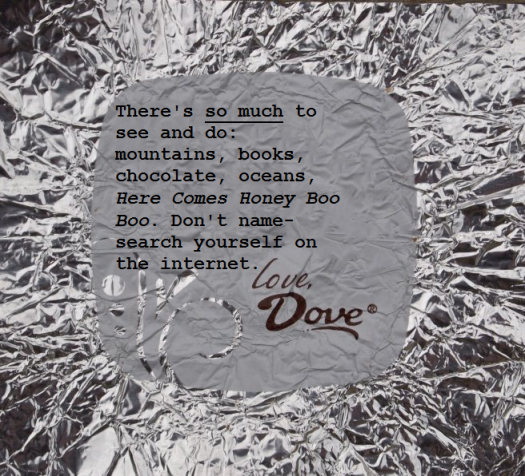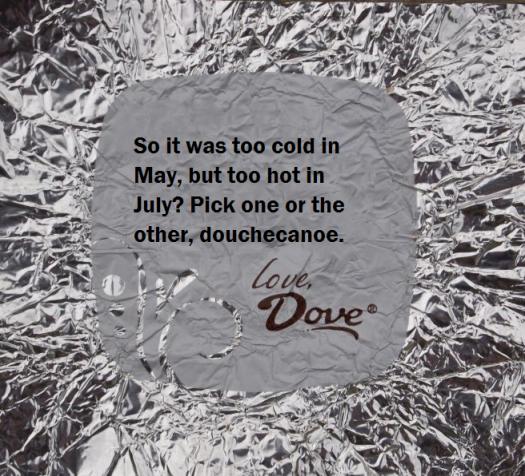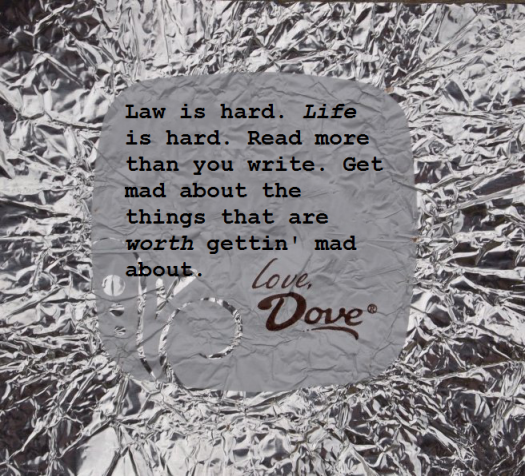 We’re a bit more than a week from November 1, which probably means a lot of things — it was my grandfather’s birthday, for one; he passed away a couple years ago, but he’d have turned 98 — but around the internet (and almost-equally among the event’s devotees, its haters and many of the utterly ambivalent), one of the most noticeable things has become that it signals the start of National Novel Writing Month, better known as NaNoWriMo. (I’m largely going to assume familiarity here; click over there to read up.)
We’re a bit more than a week from November 1, which probably means a lot of things — it was my grandfather’s birthday, for one; he passed away a couple years ago, but he’d have turned 98 — but around the internet (and almost-equally among the event’s devotees, its haters and many of the utterly ambivalent), one of the most noticeable things has become that it signals the start of National Novel Writing Month, better known as NaNoWriMo. (I’m largely going to assume familiarity here; click over there to read up.)
As far as I can tell, Twitter and other social media was really first inundated with NaNoWriMo about four years ago — people enthusiastically updating everyone they knew on their word counts, plot structures, favorite lines, etc. Very quickly after that came the backlash — people who hated that other people were cluttering their feeds with this stuff (and understandably, I think), mocking it. Some of the backlash-type stuff is funny (see Fake NaNoWriMoTips), some is really not; much more isn’t meant to be, just (again, understandably) annoyed.
In my experience (and it’s a very limited, very skewed experience, probably not representative), the backlash very quickly quieted the…frontlash? We’ll go with frontlash. I’m sure there’s a lot of earnest NaNoWriMo tweeting still going ON out there, I just don’t see it in my own little corner of the internet, and haven’t for a couple years. People I know don’t really like feeling like they’re being mocked by people who for the other eleven months of the year are their friends.
I did NaNoWriMo three years ago. I didn’t publicize it, kept it fairly well hidden, actually — I just felt like doing it, and I did. What I got was 50,000 words (more like 55,000, I think) of…something. It wasn’t a novel, certainly (not that I was expecting it to be), just the very beginning of a story about something, with some good bits and some bad bits with a strong beginning and a super-weak ending and a whole lot of holes to be filled.
I was working 60-hour weeks, and had a spouse and a toddler; it probably took a year after that November 30 to get back to it at all, and when I did all I could make myself do was reread, clean up a bit around the edges (when what I needed was a bulldozer, and then twice as many words) and wonder where I’d intended to be going with some of it. My wife has read through most of it, and I sent a few pages of it to a friend for feedback who (as far as I can tell) never got around to it, and that’s it. Not that there mightn’t be some part of it that has some use to me, somehow, someday, but it’s pretty clearly not going to turn into the Great American Novel, or even a small-n novel. I “won,” per the rules of the site, but if the goal was to actually write a novel, there’s no avoiding the fact that I basically failed.
On the way, I confirmed a lot of things I thought or knew, a lot of them pretty valid criticisms of the whole NaNo idea. Whatever they may tell you, 50,000 words isn’t really a novel (unless you’re a genius like Jerzy Kosinski, and even then I assume you start by writing twice that many words and then cutting out the trash); you can’t write a novel in a month (unless you’re Stephen King, so no matter who you are you can’t write one I want to read); writing is incredibly hard, and not nearly everybody who thinks they can do it can do it. Most of the fiction written in November (and most months, but especially November), I’ve no doubt, is trash, valueless to anyone but the writer him- or herself.
So…I’m doing it again.
It’s weird. I know how much time it takes and how frustrating it can be and how much false advertising there is in it and how unlikely it is that anything of any measurable value will come out of my doing it. But I decided, a week or two ago, that I’m going to do it again. Because I have the beginnings of an idea that’s been nagging at me for months and I want to see if it’s anything. Because I love to write, and at least as much as that, as good and rewarding as my various excuses may be, I hate not writing, and yet I still seem to find time in my day for at least a few bad reasons not to do it. And sure, there’s no reason I couldn’t just kick my own ass and do the same sort of thing any old time of the year, but it’s almost November and it’s a good time for me, so why not do it when everyone else does? Why not show up some Sunday afternoon next month and spend a couple hours typing away with a bunch of other freaks? I can’t think of a reason.
So it occurred to me to rattle this out because the other night, a Facebook friend of mine — and a really smart, funny guy I respect a whole lot and with whom I seem to agree on almost everything else — put up a status complaining about NaNo. Not, as above, about the formerly-incessant public updates about it (though I suspect that’s at the root of it), but about the idea of doing it itself. And beyond my total inability to grasp why anyone would take issue with a little thing other people decide to do for themselves that couldn’t possibly affect him in any way, the “reasoning” for it just blew me away: in essence, if you were going to be a great writer, you’d be doing it already, and wouldn’t need that kind of jump-start, wouldn’t need a super-special month to focus on it.
And to me, that stance missed so many points at once, so completely, that it really cemented in my head why I wanted to do it. For just one thing, writing fiction isn’t like, say, athletics, where if you have the natural talent you go for it while you’re young, figuring that if it doesn’t work you’ve got the rest of your life to make something else of yourself, or just that (in a lot of cases, sadly) it’s all you’ve got. Writing pulls from other skills and experience, and those skills and that experience often add up to other careers with lower failure rates that demand a lot of your time. I’d love to win the lottery or for my schoolteacher wife to suddenly fall into a $500,000-a-year job, freeing me up to stay home and drop off and pick up the kids, and in between to write 5,000 words a day, every day, until I got good at it. I would. Turns out that’s not my life, though; turns out I’m a lawyer and a dad and that the rest of my life boils down to a couple exhausted hours at the end of the day, that I don’t love writing or feel a pull toward writing any less but that I love other things too, and they take turns bumping each other out of whatever scraps of those couple hours are reserved for leisurely things.
I’m probably not going to be a great novelist, and not even a novelist, and that’s so not the point; but hell, I wouldn’t be the first English major and full-time-working professional to publish his first novel in his mid-to-late thirties (or later), either. If it’s a thing I want to do with big chunks of my precious free time for a month — and right now, it really feels like it is — then why on earth not? Really, given all those time constraints, a thing like NaNo is perfect for me. Take all that energy that’s pulled in all those different directions and force myself to focus on this one thing for four weeks, or rather for those tiny little slivers of the day during those four weeks that belong more or less to me.
So, why not? I’m not a great fiction writer right now, and I don’t think I’ll suddenly become one next month, I think I probably won’t ever be one, and I know for sure that I won’t come out of November with anything like a novel that I started at the beginning of November, and that neither will anyone else. I am a good writer with a lot of thoughts, and with an urge just now to do something with that. So I’m going to sprint right into this, again, and hope that this time I come out of it still jogging.
And the great thing is — what happens if I don’t, if I fall flat on my face instead? My consolation prize is that I spent an hour or two each night for a while working out the creative parts of my brain, with nothing else to show for it. Oh no! Guess that’s just a risk I’ll have to take…








